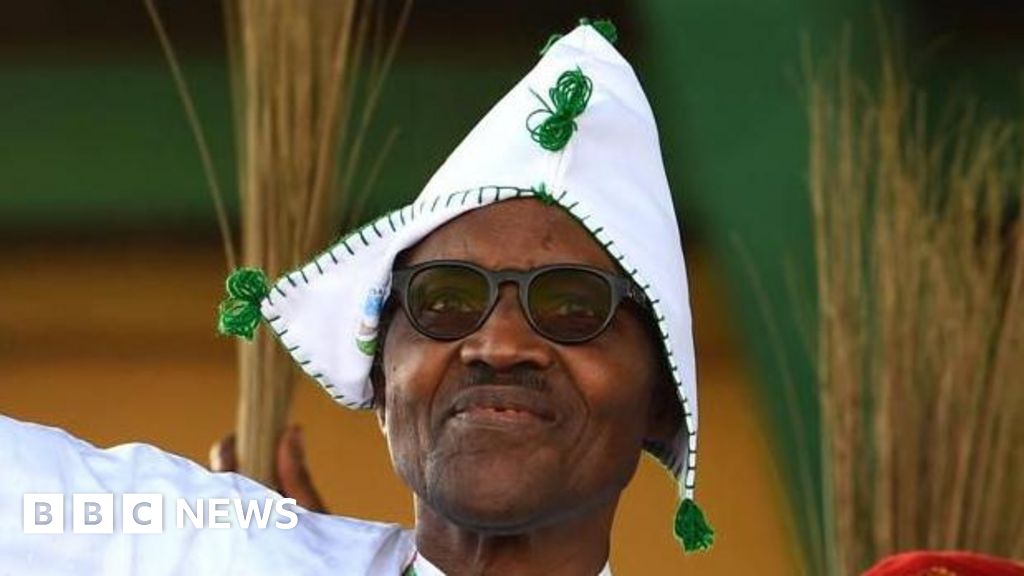Nigeria declares public holiday to honour former leader who died aged 82

```html Nigeria Mourns Former President Muhammadu Buhari
Nigeria has declared a public holiday on Tuesday to honour former President Muhammadu Buhari, who died on Sunday at the age of 82 in a London clinic after a prolonged illness. The government's announcement underscores the significant impact Buhari had on the nation, both as a military leader and a democratically elected president.
National Holiday and Funeral Arrangements
The Nigerian Minister of Interior stated that the public holiday is intended to allow Nigerians to reflect on Buhari's life, leadership, and the values he represented. Governor Dikko Radda of Katsina State, who accompanied Buhari's family in London, confirmed that the former president will be buried in his home state on Tuesday.
"What I have gathered so far is that the corpse will arrive 12pm tomorrow and the burial will happen by 2pm," Radda stated, indicating the swiftness of the funeral arrangements in accordance with Islamic tradition.
Officials clarified that the funeral was initially planned for Monday but was postponed due to logistical issues. Buhari's body will be flown directly to Katsina airport and then transported to his hometown of Daura, approximately 80km from Katsina city, for burial. Mourners have already gathered at Buhari's home in anticipation of his arrival.
A Life of Service: Military Rule to Democratic Presidency
Muhammadu Buhari served as Nigeria's head of state twice. First, as a military ruler after seizing power in a coup in 1983, and later as an elected president, after defeating incumbent Goodluck Jonathan in 2015. This landmark victory marked the first time an opposition leader had unseated a sitting president in Nigeria, a testament to Buhari's enduring political appeal.
Despite his status as a former president, Buhari will not receive a state funeral. Abdullahi Garangamawa, an Islamic cleric, explained to the BBC that in line with Islamic teachings, Buhari will be buried quickly in a simple ceremony.
Tributes Pour In
Tributes have flowed in from across the political spectrum. Former President Goodluck Jonathan, who Buhari defeated in 2015, described him as "selfless in his commitment to his duty and served the country with character and a deep sense of patriotism."
Even General Ibrahim Babangida, who ousted Buhari in a 1985 coup, praised the late leader. "He is a man who, even in retirement, remained a moral compass to many, and an example of modesty in public life," Babangida said.
President Bola Ahmed Tinubu has declared a seven-day national mourning period in honour of Buhari. In a statement, Tinubu said the nation would pay its final respects with dignity and honour, beginning with the lowering of national flags to half-mast across the country.
Historical Context and Legacy
Buhari's legacy is complex and multifaceted. His initial military regime was characterized by a strict adherence to law and order, but also faced criticism for its human rights record. His return to power in 2015 was greeted with optimism, as he promised to tackle corruption and insecurity, two major challenges facing Nigeria. However, his second term was marked by economic struggles and persistent security threats, including the Boko Haram insurgency and farmer-herder conflicts.
Expert Analysis: Dr. Fatima Hassan, Political Analyst
"Buhari's presidency reflects the ongoing struggle in Nigeria to balance democratic ideals with the need for strong leadership in the face of significant challenges," says Dr. Fatima Hassan, a political analyst at the Centre for African Studies in Lagos. "His commitment to fighting corruption resonated with many Nigerians, but his administration's economic policies and handling of security issues drew criticism. His legacy will be debated for years to come."
The Economy and Security: Key Challenges
One of the major criticisms leveled against Buhari's administration was its handling of the economy. While he made efforts to diversify the economy away from oil, Nigeria continued to struggle with high unemployment and poverty rates. The Boko Haram insurgency also remained a persistent threat, despite military efforts to combat the group. Farmer-herder conflicts, exacerbated by climate change and resource scarcity, also contributed to instability in many parts of the country.
Looking Ahead
As Nigeria mourns the loss of a former leader, the country also looks ahead to the future. The transition to a new administration under President Tinubu presents both opportunities and challenges. Addressing the economic and security issues that plagued Buhari's presidency will be crucial for ensuring stability and progress in Nigeria.
Expert Analysis: Professor Adebayo Williams, Historian
"Buhari's passing marks the end of an era in Nigerian politics," says Professor Adebayo Williams, a historian at the University of Ibadan. "His life story, from military ruler to democratically elected president, reflects the complex trajectory of Nigeria's political development. His legacy will be judged not only by his achievements, but also by the challenges he faced and the impact his decisions had on the lives of ordinary Nigerians." ```
Originally sourced from: BBC News Africa
